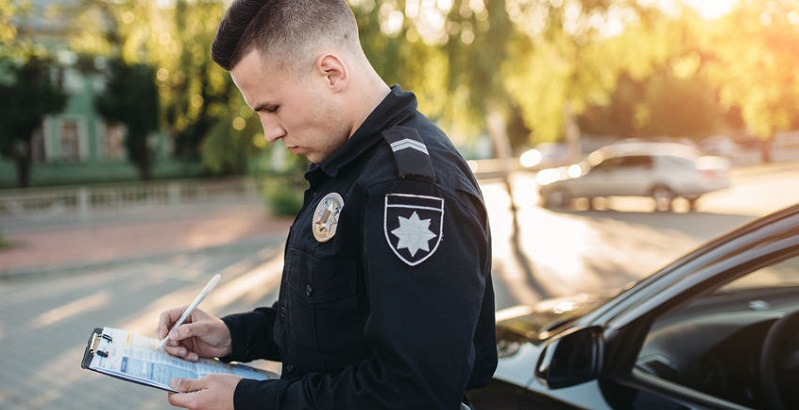Police-issued traffic tickets have dropped by nearly 45 percent over the last decade in Denver, while traffic fatalities here have reached a 10-year high.
Dwindling Traffic Unit Copes With Booming Populace
The number of police-issued traffic citations has dropped by nearly 45 percent over the last decade, from about 145,000 in 2009 to nearly 80,000 in 2018, according to a report by The Denver Post’s Jon Murray. Meanwhile, the city’s traffic fatalities increased to its highest number in that period. At least 63 died from injuries sustained in 58 crashes in 2018. The death count represents a 17 percent increase from 2013.
And while the number of Denverites has grown by about 20 percent, police officials quoted by The Post indicate dramatic decreases in officers assigned to traffic duty: from as many as 120 in 2005 to a number somewhere between 50 and 70 today.
Machine vs. Human Enforcement
The number of police-issued citations excludes the nearly 173,000 generated by red-light cameras at four targeted intersections and speed-radar vans that move around the city. Those are mailed to drivers and treated differently than those issued by officers.
Safety experts cited by The Post say that even with the cameras’ efficiency, having adequate patrols by police officers is vitally important. The photo tickets carry lower fines than those issued by police officers and don’t count against motorists’ driving records. Camera-enforcement equipment can only monitor some streets while other areas are missed. Moreover, the cameras don’t monitor other types of driving violations.
Although red-light cameras remain unpopular with many, national safety groups, such as the American Automobile Association, Advocates for Highway and Auto Safety, the Insurance Institute for Highway Safety, and the National Safety Council all tout the devices’ effectiveness in making streets safer.
Tickets Fluctuate Elsewhere in State
Court statistics reviewed by The Post show a similar but smaller decline in traffic tickets issued by police across Colorado. In some districts, the numbers of tickets have merely fluctuated but haven’t shown a clear decline.
In Aurora, however, police-issued traffic tickets have been increasing. The 38,420 issued in 2018 represent a nearly 38 percent increase over 2016’s total. Coincidentally, Aurora voters overwhelmingly decided in November of 2018 to stop using red-light cameras in that city, which had installed twice as many Denver had.
Even though common sense and safety studies predict that increased enforcement leads to safer driving, Aurora’s increase in police-issued tickets did not result in safer roads. City police reported 33 traffic deaths in 2018, up from 27 the previous year and from 19 deaths in 2013.
Denver Aiming for Zero Car Accident Deaths
Leaders are hoping to reverse the upward trend in Denver’s auto accident fatalities completely. In 2017, the city adopted the “Vision Zero” action plan, which aims to reduce serious injuries and deaths related to traffic accidents by 2030. They plan to do this over the next dozen years by improving the designs of roads and intersections, teaching better safety practices to the public, and using greater intelligence to enforce traffic laws. The safety advocates and city leaders interviewed by The Post indicate mixed views on whether increased police patrols or camera and radar devices should take precedence.
Councilman Paul Kashmann of southeast Denver, though, thinks the city needs more of both. At a recent meeting, Kashmann told traffic safety leaders:
“We hear daily, all over our city, real fear — it’s past the point of concern — for what our traffic situation’s doing. … We will hope to hear more requests for more bodies and technology, whatever (you need).”

